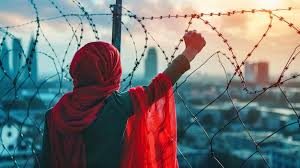By Avani Bansal
Are we moving forward or thousands of years back vis-a-vis women’s rights? Iraq’s Parliament is discussing a proposal to reduce the women’s consent age from 18 years to 9 years. This means that, if the law is passed, then women in Iraq could be legally married off at the age of nine years, with equally serious implications on their custody, inheritance, and related personal laws, alongside education and health.
This has come as a shock around the world, where efforts have been made consistently to increase the consent age for women, thanks to a series of international and national interventions by the global community. While the exact consent age differs from country to country, 18 years is the minimum age that is now being accepted as a fair cut-off around the world, including in Iraq up until now.
The rationale given for proposing reduction of age has been to avoid girls entering ‘immoral relationships’. Yet this move clearly threatens to take away any ‘agency’ from women, by legally permitting them to be married off by their guardians at such a young age, where they are in no position to have a say in the matter.
By taking away the agency of women, they are being systematically reduced to ‘lesser’ or the ‘weaker’ sex. While Iraq’s move has come under sharp criticism, it is not alone, when it comes to a push back on women’s rights.
Just recently, an Iranian student – Ahoo Daryaei stripped to her underpants and bra, as an act of revolt against the ‘moral policing’ at Tehran’s Islamic Azad University.

In Afghanistan, Taliban has been working towards reducing women’s rights and imposing bans on them in different forms. For instance, Taliban has severely restricted men and women’s interaction, has placed severe restrictions on women’s clothing, hairstyles etc. Women in Afghanistan are being prevented from travelling abroad, without a legal guardian, and girls are not being permitted to pursue education beyond secondary school.
There was a time when women’s freedom movement in Iran was seen as an example by the rest of the world – but what we are witnessing today both in Iran and Iraq is a systemic dismantling of women’s rights.
In 2022, there was an emergence of hope in the Kurdish ‘Jin, Jiyan Azadi’ slogan giving rise to the ‘Woman, Life, Freedom Movement’ after the tragic death of Jina Mahsa Amini. Amini, like Daryaei, was arrested by Iran’s morality police for wearing her hijab ‘improperly’ and subsequently died in custody. People world over, are now worried for Daryaei meeting the same fate.
Women’s rights world over has rarely been about just women’s rights – its been a movement about right to life, security and self-expression which can be broadly categorised as human rights.
As her name suggests – Ahoo Daryaei (Deer of the Sea) has struck a chord of revolution and has become a symbol of protest, bringing the Islamic nations under microscope for their treatment of women.
Back home, while the current dispensation is pushing for a ‘Hindu’ rastra’ with Nirmala Sithraman outrightly denying that there exists any patriarchy – we have a fight of our own.
Now, more than ever – we know that the fight for women’s rights is never an isolated one. So, women of the world unite – we have nothing to lose but our chains.


